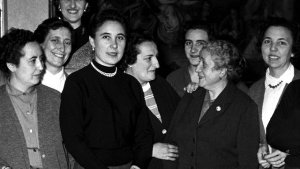Pope Francis today authorized the recognition of the “heroic virtue” of young Carlo Acutis, an Italian boy who died October 12, 2006, at age 15, of leukemia.
Acutis was a “computer geek,” who loved all things technological, such that some of the adults who knew him and had studied computer engineering thought he was a genius.
One of his most significant computer ventures was cataloguing all the Eucharistic miracles of the world. He started the project when he was 11 years old and wrote at the time, “The more Eucharist we receive, the more we will become like Jesus, so that on this earth we will have a foretaste of Heaven.”
He then asked his parents to start taking him to all the places of the Eucharistic miracles, and two and half years later the project was completed.
Read our story from when the diocesan phase of his cause for canonization closed:
Read more:
“Computer geek” takes one more step toward sainthood
In addition to the advance in Acutis’ cause for canonization, Pope Francis also recognized the heroic virtue of two other young people.
Pietro di Vitale was a young seminarian. Born in 1916, he died in 1940 at age 24, just some years after entering seminary. At his death, he told his mother, “Mama, long live Jesus and Mary.”
As well, Alexia Gonzalez-Barros was recognized today as Venerable.
Born in 1971 in Spain to a family involved with Opus Dei, Alexia suffered from illness from the time she was very young. In 1979, she went to Rome for her First Communion and was able to greet Pope John Paul II. When she was 13, a tumor left her paralyzed. She died a few months later, on December 5, 1985, showing exemplary courage.

Read more:
Miracle approved: This Opus Dei laywoman obtained the healing of a man’s skin cancer

Read more:
What is Opus Dei? What Dan Brown got right … and wrong

